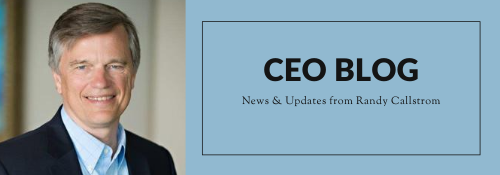
As a child growing up in south Kansas City, Missouri, I would make periodic trips to The Plaza with my family. When we neared Troost Avenue, the historic dividing line between Black and White Kansas City, my father would say, “Lock your doors. We’re in enemy territory.”
I never heard my father use a racist epithet or on any other occasion disparage Black people. I’m sure if someone had told him that his words were racist, he would have been taken aback. But repeated as often as they were, his words left a racist scar in my heart. They shaped my perception of the world around me. I should be afraid of the people who lived east of Troost. Worse, I should see them as my “enemies.”
It has taken me years, decades even, to recognize how my father’s words have shaped my worldview. Reinforced by a dominant white culture that has equated “dangerous neighborhoods” with Black neighborhoods, these words have caused me to approach certain areas of Kansas City with my guard up. They’ve contributed to the cautious manner with which I’ve approached young black men on the street who are wearing hoodies or low-slung pants.
If you had asked me several years ago if I considered this caution a racist behavior, I would have protested. Me? Racist? Who, after all, wants to believe that about themselves? As Robin DiAngelo puts it in her book “White Fragility,” it’s akin to delivering a “deep moral blow” to yourself.
Like many White people who believe they have stood for racial justice over the years, who have joined in protests against racist ideologies and practices, I have done my best, or so I thought, to affirm the dignity and equal rights of all human beings. I have long striven to make sure my behavior and my words were on the right side of history. The side that said, “We cannot tolerate the oppression of people simply because of the color of their skin,” the side that was moved to tears after reading King’s “Letter from Birmingham Jail,” the side that has debated with overtly racist people about acknowledging the dignity of all human beings.
Despite this striving, I, like many other White people, have leaned on these beliefs and behaviors to insulate myself from exploring unconscious attitudes that are at odds with who I think I am. Or from exploring how I might have benefitted from the racist policies, attitudes, and ideologies that have delivered White people greater privileges than people of color have.
Protests prompted by the murder of George Floyd and the ensuing conversations about race have raised awareness among White people and caused many of us to ask: How can I use the privileges I enjoy as a White person to actively fight racism? Black activists are calling for White people to dig deeply to uncover biases they weren't aware of, to learn how such attitudes have worked their way into our social structures and institutions, and to work to dismantle them. I, for one, welcome this challenge. In fact, as the leader of a mental health center in a diverse community, I would be failing that community if I were to ignore it.
Earlier this year, our Diversity Task Force revised our discrimination policy to clearly state that it is an anti-racism and harassment policy. We have enhanced our cultural competency training to include more information about implicit biases. These changes have sparked difficult conversations at Wyandot. Through them, I’ve heard that some people of color on staff have experienced microaggressions and offensive statements. There is no way to rationalize these incidents. Rather, we must learn from them and take every step we can to become a safer organization for our staff.
As we meet these challenges, we will not only strengthen relationships among our employees, but we will also improve the mental health services we deliver to Wyandotte County. By making the collective effort to recognize the implicit biases embedded in our organization, we will make great strides toward recognizing that we serve a community that has been traumatized by systemic racism. The responsibility to begin healing from that trauma lies with us.
